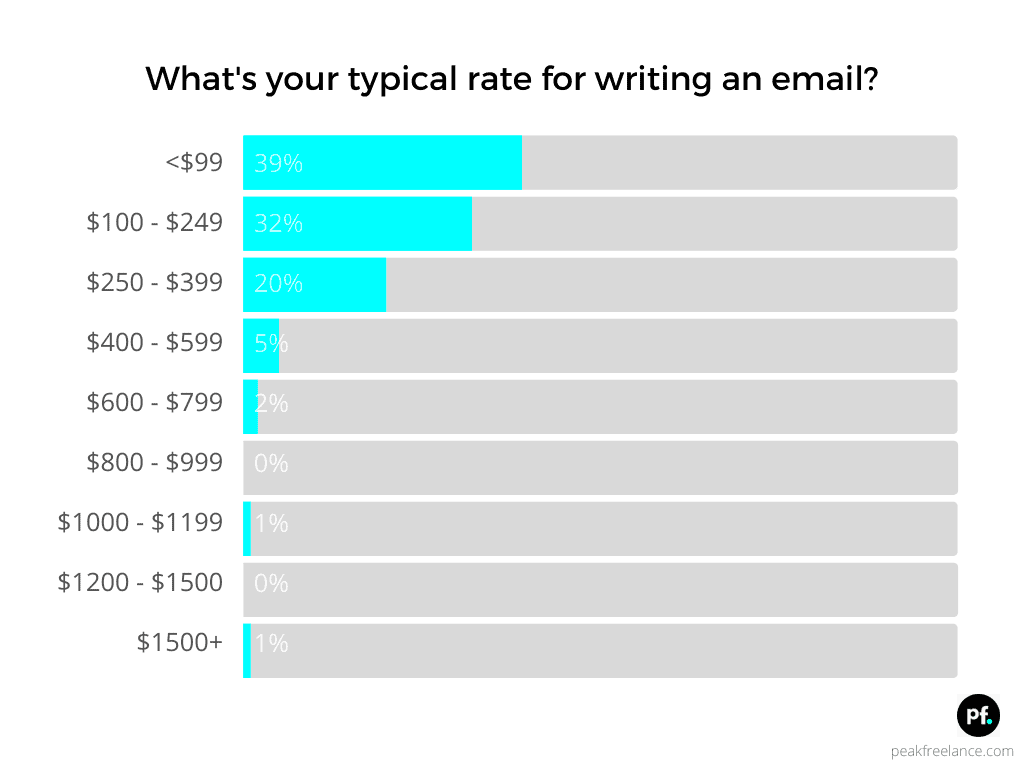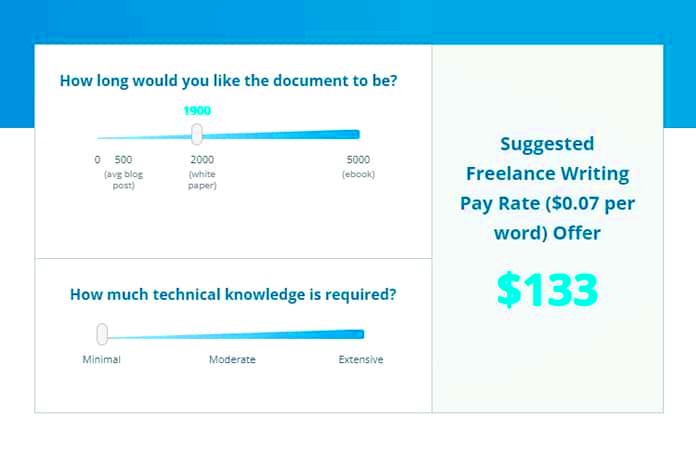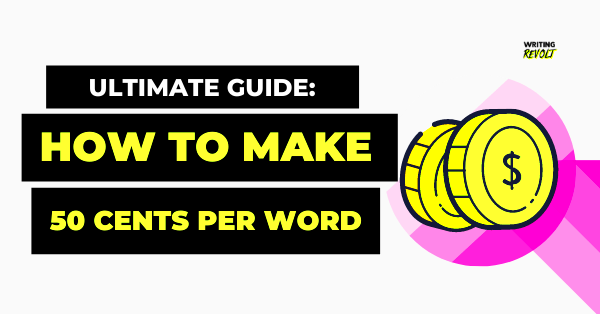Freelance writing is a flexible career that allows writers to work for various clients on a project basis. Unlike traditional employment, freelance writers have the freedom to choose their projects, set their schedules, and work from anywhere. This career can be rewarding, both creatively and financially. However, understanding the dynamics of freelance writing is essential for success. It involves more than just writing; it requires marketing yourself, managing your time, and navigating client relationships.
Factors Influencing Per Word Rates

When setting your per word rates as a freelance writer, several factors come into play:
- Experience Level: New writers may charge lower rates to attract clients, while experienced writers can command higher fees.
- Industry Demand: Some niches, like technology or finance, may offer higher pay due to specialized knowledge.
- Project Complexity: More complex projects that require extensive research or expertise typically warrant higher rates.
- Client Budget: Some clients may have strict budgets, affecting the rates you can negotiate.
- Geographic Location: Writers in different regions may charge varying rates based on local cost of living and market demand.
By considering these factors, you can set a rate that reflects your skills and the value you bring to clients.
Also Read This: How to Get Leads on Fiverr
Average Per Word Rates in Different Niches

The average per word rates for freelance writing can vary significantly by niche. Here’s a breakdown of what you might expect in various fields:
| Niche | Average Rate (per word) |
|---|---|
| Blog Writing | $0.10 - $0.50 |
| Copywriting | $0.15 - $1.00 |
| Technical Writing | $0.20 - $1.50 |
| SEO Writing | $0.10 - $0.75 |
| Creative Writing | $0.10 - $0.75 |
These rates can serve as a guideline, but remember that your experience, the specific requirements of the project, and the client’s budget will ultimately influence your rates. Always aim to align your pricing with the value you provide to clients.
Also Read This: How to Change Display Name on Fiverr
How to Determine Your Own Per Word Rate

Setting your own per word rate can be a challenge for many freelance writers. It's essential to find a balance between what you believe your skills are worth and what clients are willing to pay. The first step in determining your rate is to assess your experience level and the services you provide. You can start by researching industry standards, but ultimately, your unique skills and niche will shape your pricing.
Here are some steps to help you determine your per word rate:
- Evaluate Your Experience: Consider how long you've been writing and the quality of your portfolio. If you're a beginner, you might start at a lower rate to build your reputation.
- Research Industry Rates: Look up what other freelance writers in your niche are charging. Websites like Upwork and Fiverr can provide insights.
- Consider Your Niche: Some industries, like technical writing or medical writing, pay more due to the expertise required.
- Factor in Your Costs: Remember to account for expenses like software, internet, and taxes. Your rate should cover these costs and allow for profit.
- Test and Adjust: Start with a rate and see how clients respond. If you’re consistently getting work, consider increasing your rates as your experience grows.
Finding the right rate takes time, so be patient and flexible as you learn what works best for you.
Also Read This: How to Get SEO Help on Fiverr – A Complete Guide
Negotiating Your Rates with Clients
Negotiating rates with clients can feel daunting, but it is a crucial skill for freelance writers. Effective negotiation can lead to better pay and improved client relationships. Here are some tips to help you navigate this process:
- Be Confident: Understand your value and be prepared to articulate it. Confidence can influence how clients perceive your worth.
- Do Your Homework: Research industry standards before discussing rates. This knowledge will support your requests and help you avoid underselling yourself.
- Know Your Bottom Line: Before negotiations begin, decide the lowest rate you are willing to accept. This gives you a clear boundary during discussions.
- Offer Options: If a client cannot meet your desired rate, suggest different packages or scopes of work that could accommodate their budget.
- Be Open to Compromise: Sometimes, meeting halfway can lead to a more positive outcome for both parties. Flexibility can foster stronger client relationships.
Remember, negotiating is a normal part of freelancing, so don't shy away from it. It can lead to better opportunities in the long run.
Also Read This: Can I Do Fiverr with a Cell Phone?
Common Mistakes Freelance Writers Make
Even experienced freelance writers can fall into traps that hinder their success. Here are some common mistakes to avoid in your freelance writing journey:
- Undervaluing Your Work: Many writers charge too little because they underestimate their skills. Always set rates that reflect your experience and the quality you provide.
- Ignoring Contracts: Failing to use contracts can lead to misunderstandings about payment and project scope. Always get agreements in writing to protect yourself.
- Neglecting Marketing: Some writers focus solely on writing and forget to market themselves. Building a personal brand and networking is crucial for finding clients.
- Overcommitting: Taking on too many projects can lead to burnout and subpar work. Learn to say no and manage your workload effectively.
- Not Seeking Feedback: Avoiding constructive criticism can stunt your growth. Embrace feedback to improve your writing and better serve your clients.
Avoiding these common mistakes can help you build a successful freelance writing career and enhance your reputation in the industry. Keep learning and adapting as you grow.
Also Read This: How to Search Keywords for Your Fiverr Gig
Building a Portfolio that Supports Your Rates
Your portfolio is one of the most important tools you have as a freelance writer. It showcases your skills, style, and experience to potential clients. A strong portfolio can justify your rates and help you stand out in a competitive market. But how do you build a portfolio that not only reflects your work but also supports your pricing?
Here are some tips to create an impressive portfolio:
- Select Diverse Samples: Include a variety of writing samples that demonstrate your range. This might include blog posts, articles, copywriting, and more.
- Highlight Your Best Work: Choose pieces that you are proud of and that have received positive feedback. Quality over quantity is key.
- Showcase Relevant Experience: Tailor your portfolio to the niches you want to work in. If you want to focus on tech writing, include relevant samples that highlight your expertise in that area.
- Include Testimonials: If you have worked with clients before, ask for testimonials. Positive feedback can enhance your credibility and attract new clients.
- Keep It Updated: Regularly add new work to your portfolio. This shows potential clients that you are active and continuously honing your skills.
Remember, your portfolio is often the first impression clients will have of you. Make it count by ensuring it reflects your skills and justifies your rates.
Also Read This: Steps to Becoming a Freelance Stylist
FAQ
When it comes to freelance writing, many questions can arise. Here are some frequently asked questions to help you navigate this field:
- What is a typical per word rate for freelance writers? Rates vary widely based on experience and niche. Beginners might charge around $0.10 per word, while seasoned writers in specialized fields can charge $1.00 or more.
- How can I find clients as a freelance writer? Utilize platforms like Fiverr, Upwork, and social media. Networking and personal branding are also effective strategies for attracting clients.
- Is it necessary to have a portfolio? Yes, a portfolio is crucial. It showcases your writing style and helps clients assess your skills before hiring you.
- How do I handle difficult clients? Stay professional and communicate openly. If issues arise, try to resolve them amicably. If necessary, be prepared to end the working relationship respectfully.
- What should I do if I’m not getting enough work? Reevaluate your marketing strategies, update your portfolio, and consider diversifying your services or niches to attract more clients.
Conclusion
Freelance writing can be a rewarding career, but it requires careful planning and execution. Understanding how to set your rates, negotiate with clients, and build a strong portfolio is essential for success. Remember to avoid common mistakes and stay open to learning and adapting as you grow in your freelance journey. With persistence and the right strategies, you can achieve your goals and build a fulfilling career in freelance writing. So, get out there, showcase your skills, and start charging what you’re worth!




